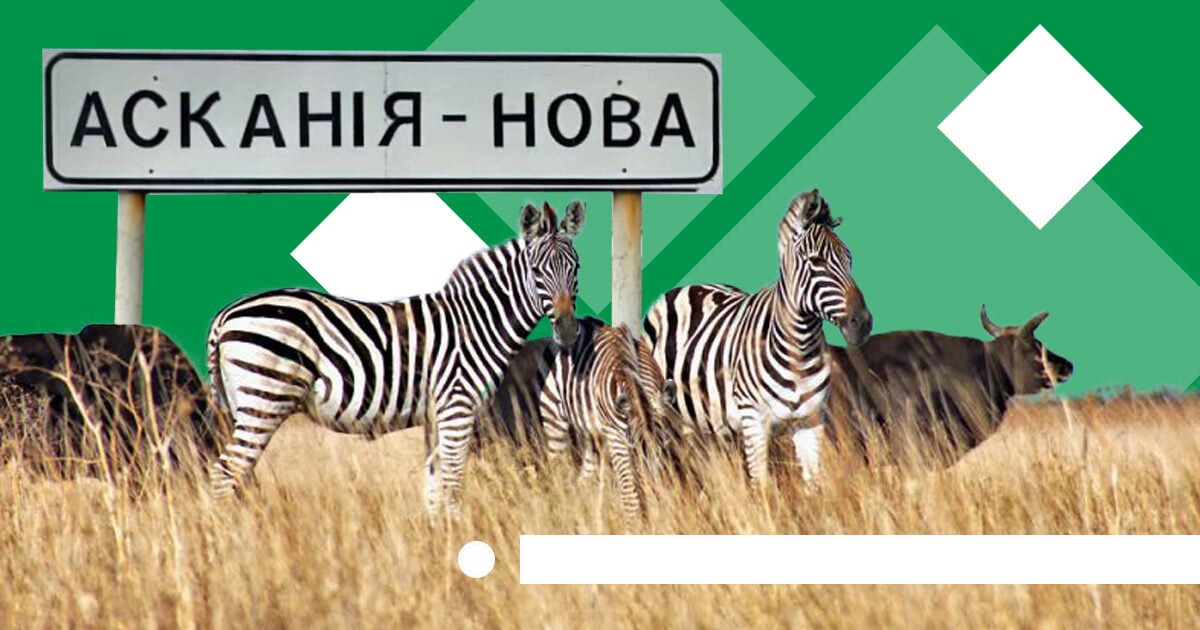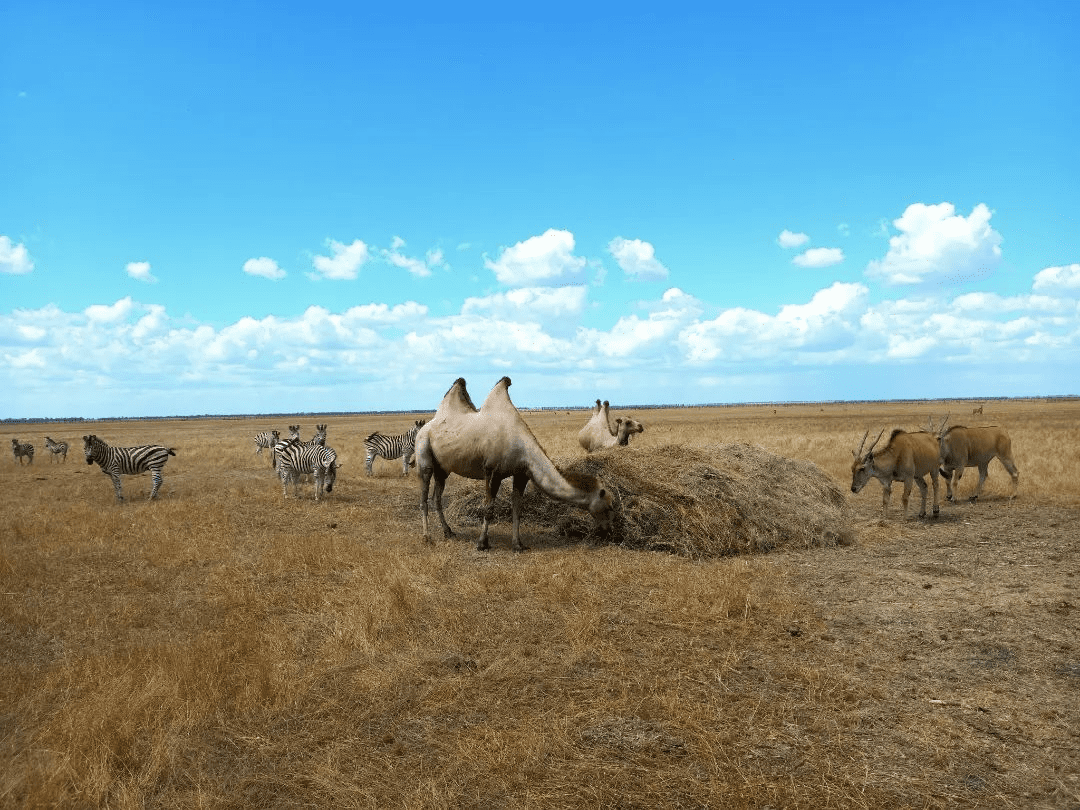
What is the problem?
Since the beginning of the war, 17 national parks, three nature reserves, and three biosphere reserves have been occupied. According to Ukraine's Ministry of Ecology and Natural Resources, up to 900 nature conservation areas are currently occupied, or hostilities are taking place on their territory. Now the territories are gradually being liberated, others are still under occupation, and it's clear that it's practically impossible for state authorities or public organizations to conduct environmental protection activities there.
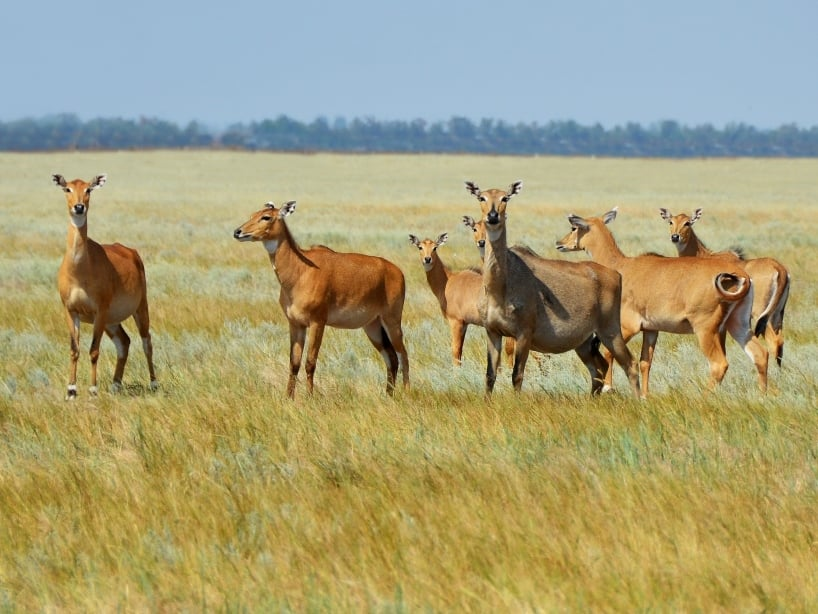
Photo from Askania-Nova Biosphere Reserve Facebook page
Reserves and nature reserves can survive shelling, Oleksii Vasyliuk, Head of the Ukrainian Nature Conservation Group (UNCG), believes, but people working in national parks and nature reserves must be evacuated. It is an arduous task:
"We're trying to save people from the occupied territories. The employees must obviously examine the territory and protect it from unwanted visitors. But it's impossible to do this under shelling, and even more so in occupation or mined territories," says the biologist and head of the public organization.
At the same time, there's an exception. It is a biosphere reserve that cannot exist without people. Askania-Nova is just that case.
Temporary occupation
Recently, news flashed in the mass media that Askania-Nova had allegedly declared itself russian territory. However, according to Oleksii Vasyliuk, this news was wrong about Askania-Nova Reserve. They meant the Askania-Nova animal husbandry institute, and the biosphere reserve itself remained operating as a Ukrainian institution.
The Askania reserve is endless steppes, and they obviously do not interest the russians. This is what saves it from the russian army:
"For you and I, Askania is something special. And for the russian invaders, this is grass in the middle of an endless plain. They are not interested in it, but they can take away valuable property from the administrations because there were precedents in other nature conservation territories," Oleksii Vasyliuk explains.

Photo from Askania-Nova Biosphere Reserve Facebook page
Why can't employees evacuate from Askania-Nova?
Askania-Nova is a valuable reserve for Ukraine, and its ecosystem is not as independent as in other parks. One and a half thousand ungulates, the zoo, many birds exist not in wild but semi-wild conditions, and their lives depend entirely on the work of the staff.
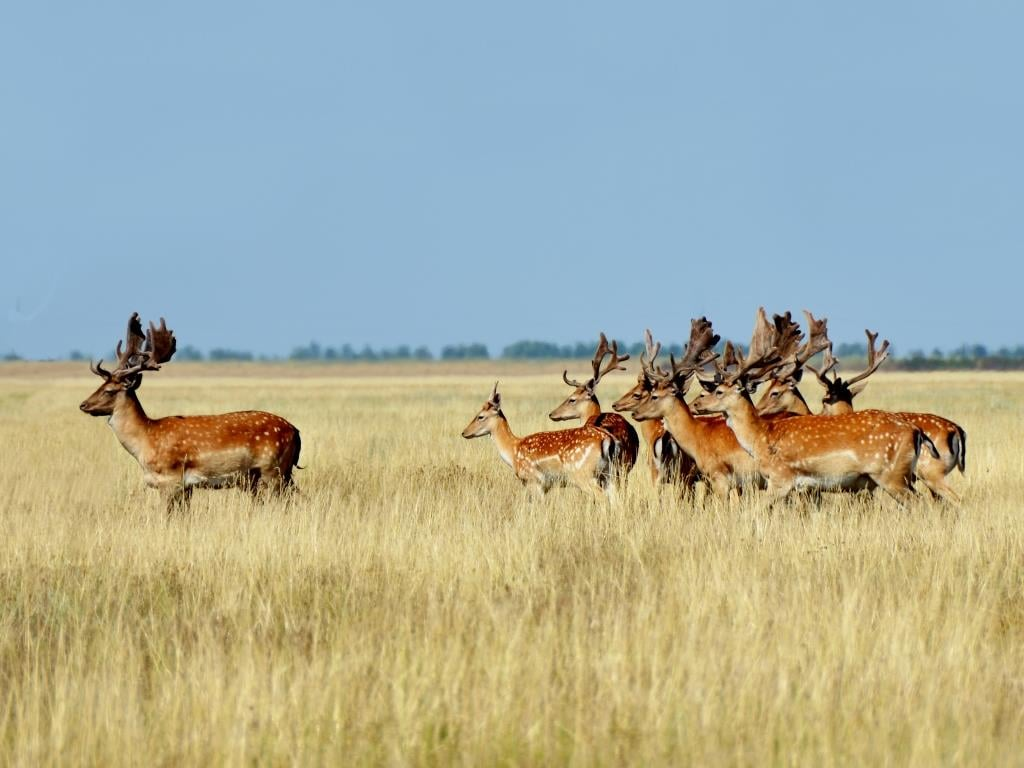
Photo from Askania-Nova Biosphere Reserve Facebook page
Ungulates must be driven from pen to pen; the staff must move hundreds of animals grazing in the steppe indoors for the winter. After all, all of Askania has existed on artificial irrigation for almost 140 years.
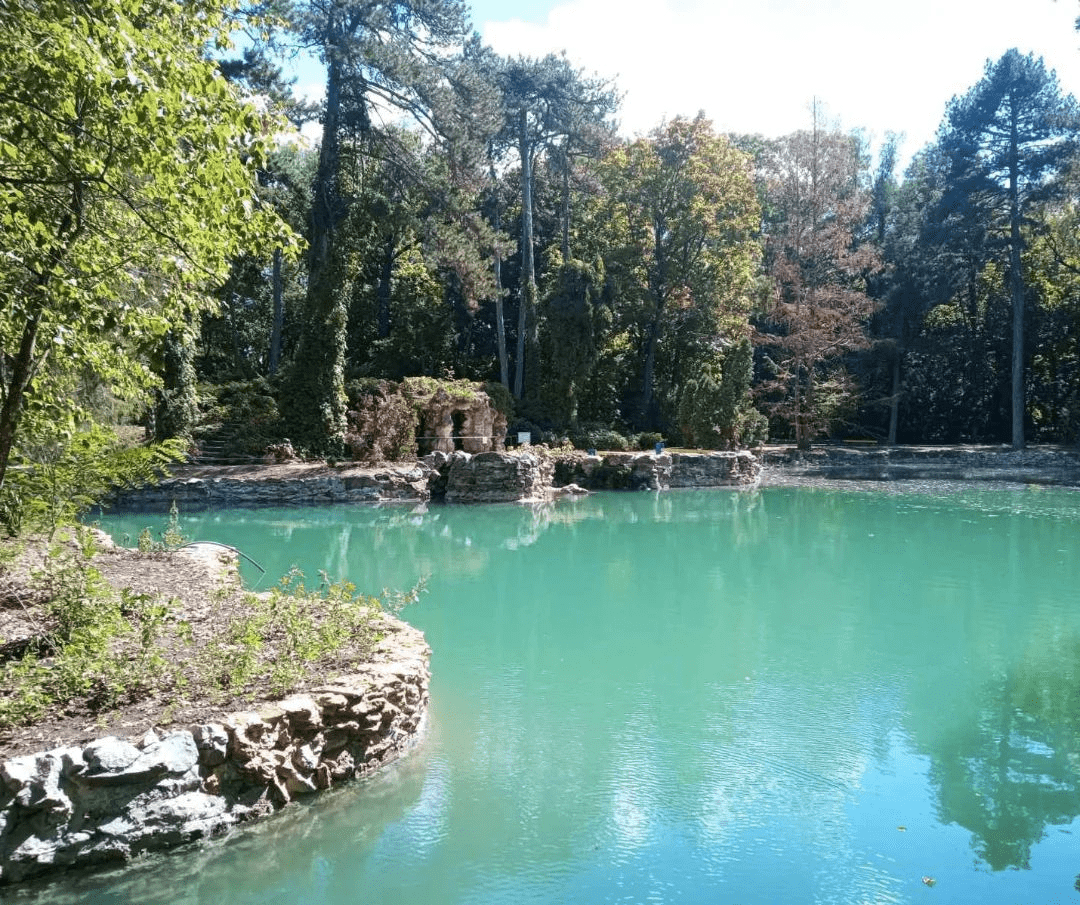
Photo from Askania-Nova Biosphere Reserve Facebook page
Artesian water is constantly supplied here, thanks to which the Askania oasis exists. All animals perceive their environment as if they live in the wild, but in reality, they all drink water supplied by electricity. Some of the trees in the Arboretum of Askania are more than 100 years old, and their beautiful condition is also ensured by human activity.
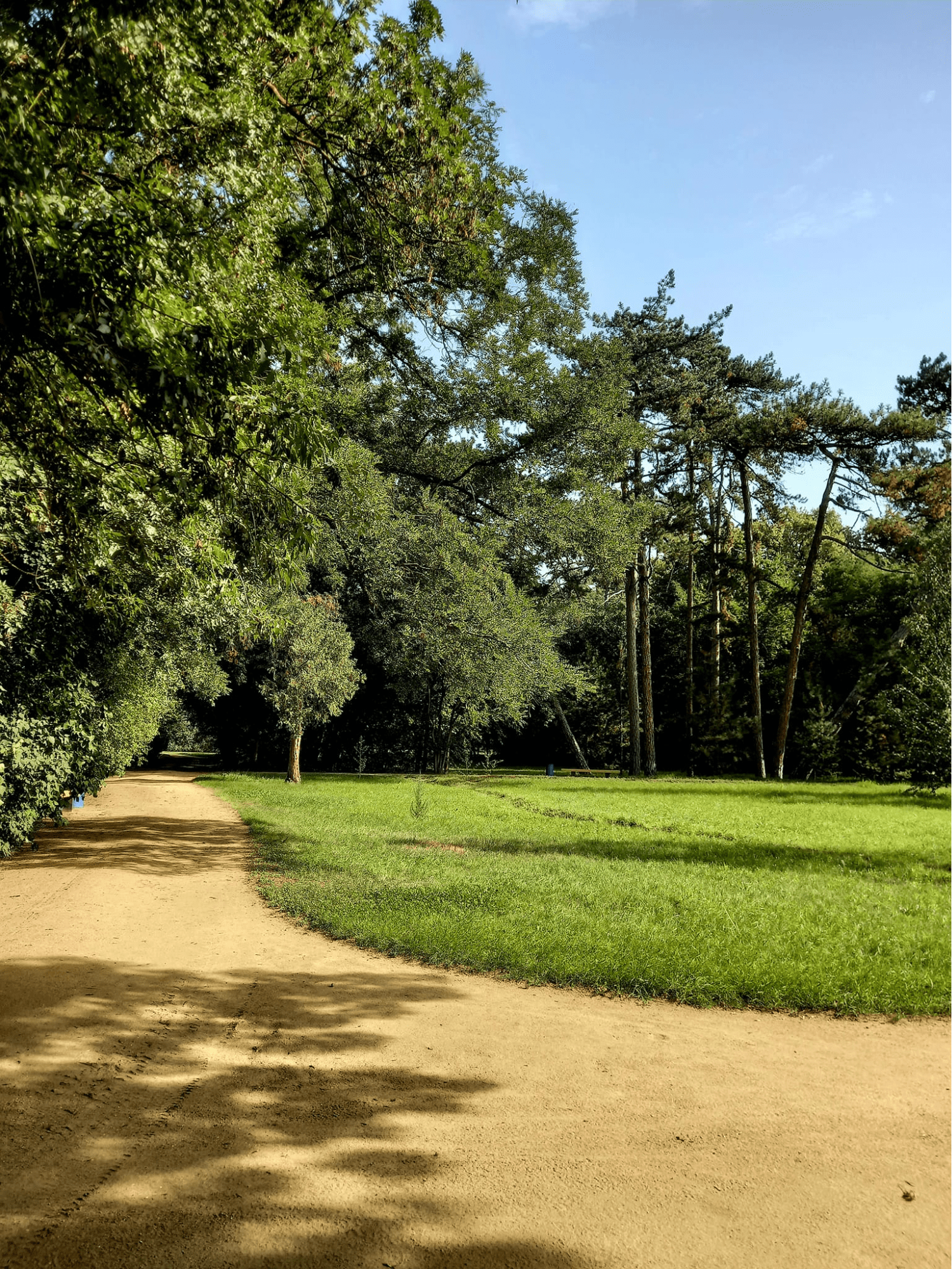
Photo from Askania-Nova Biosphere Reserve Facebook page
If the Askania employees evacuate, everything that attracts visitors to the reserve, according to Oleksii Vasyliuk, will simply die. That is why most of the workers are still there.
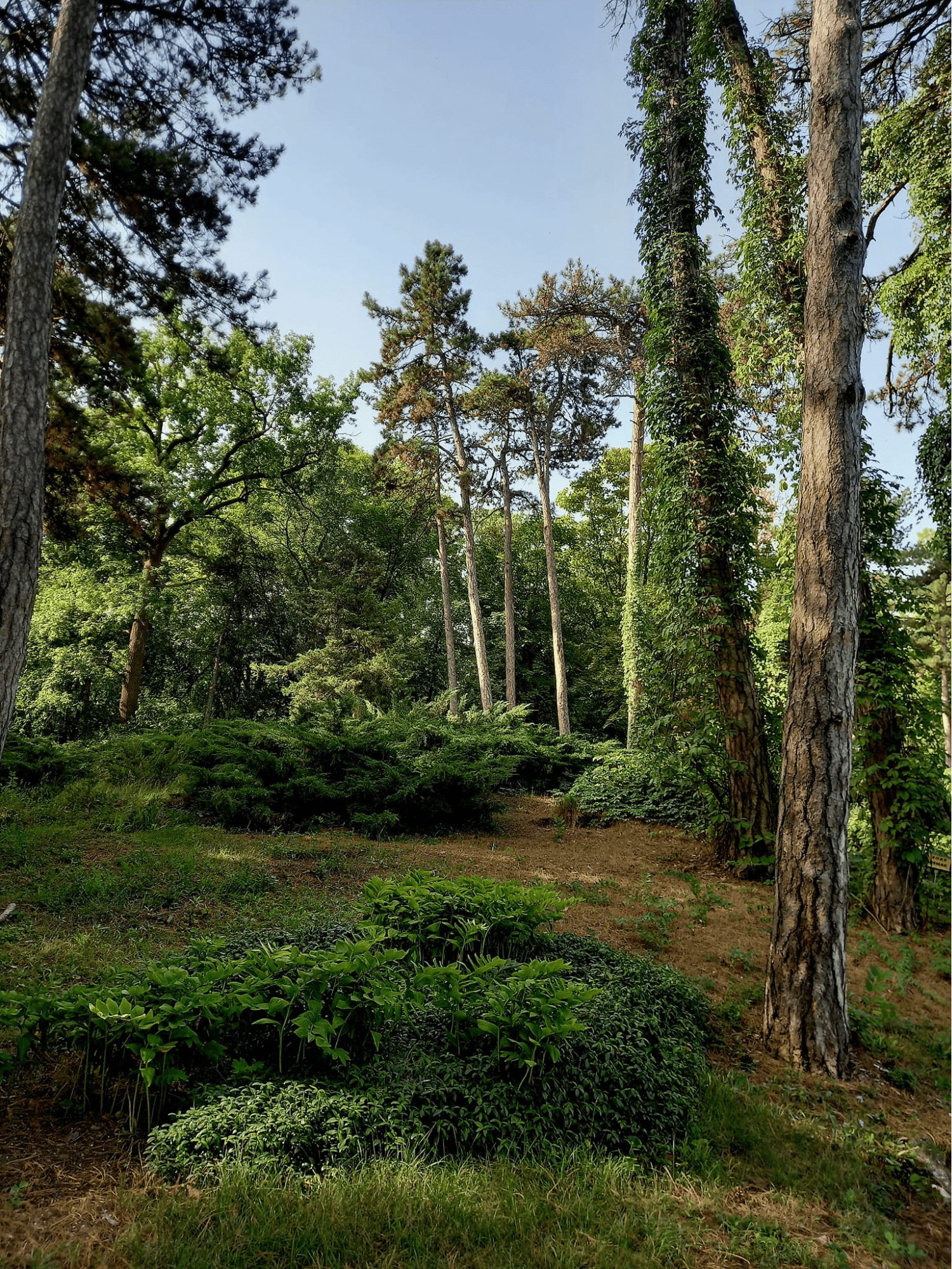
Photo from Askania-Nova Biosphere Reserve Facebook page
The right help
The administration of any occupied reserve or national park is in critical need of finances. That state funding in the occupied territories is practically impossible, so employees of many national parks and nature reserves haven't received salaries since the beginning of the occupation but continue to go to work.
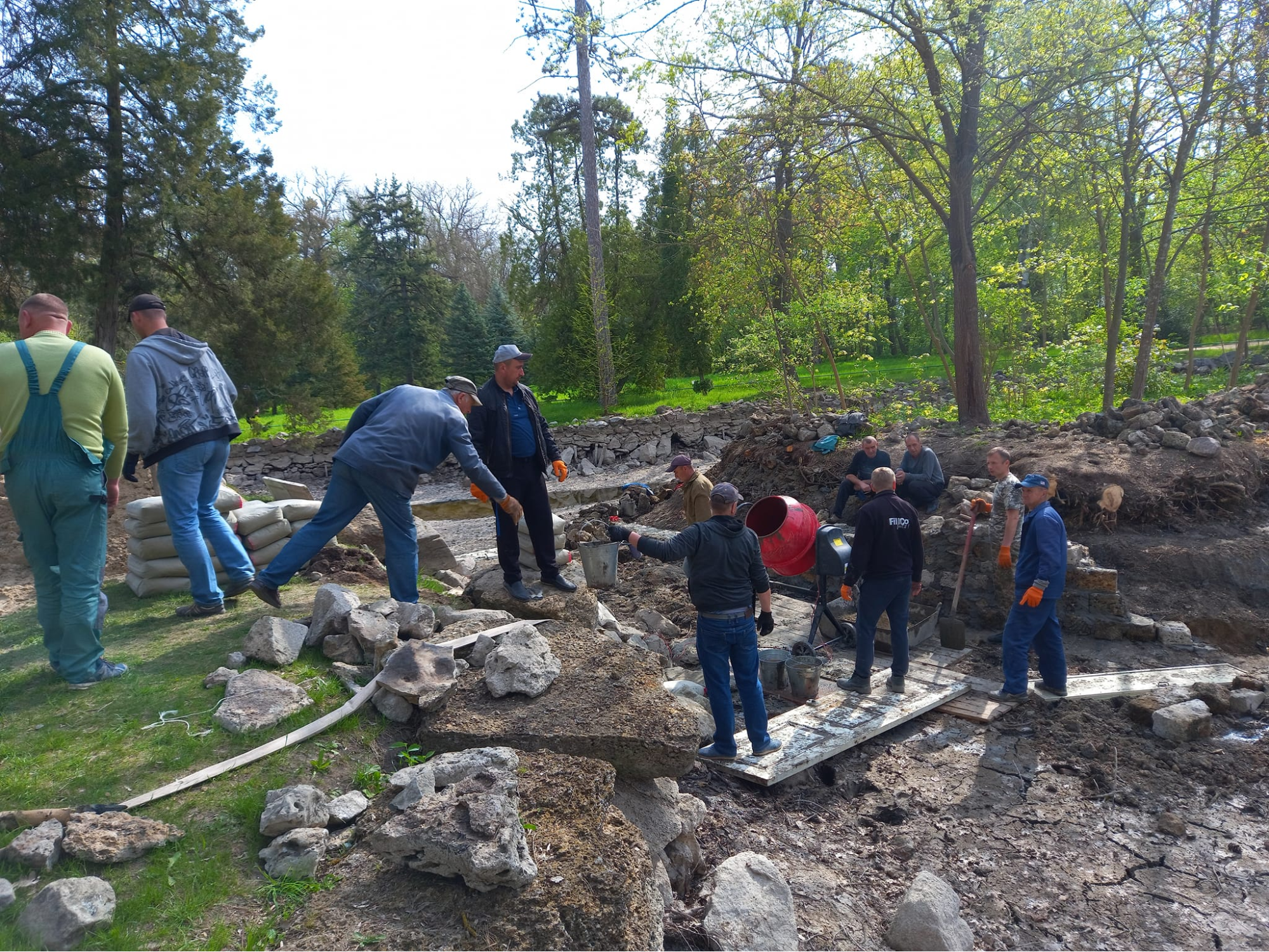
Photo from Askania-Nova Biosphere Reserve Facebook page
Ukrainian Nature Conservation Group took on the role of helping colleagues in the occupation. However, they can only do it thanks to donations, which are unlikely to be enough to cover the needs of many nature reserves and national parks. Ordinary citizens—Ukrainians, Poles, or Americans—come to help national parks and reserves, and, at the same time, some international organizations join them, sending funds to the charity account of the Ukrainian Nature Conservation Group. Contributors usually think that the first thing the sanctuaries need is animal feed. They would like to see a photo of the purchased feed. But Oleksii Vasyliuk says that it's not always about fodder: the funds go to other priority needs that must be covered for the reserve to operate:
"For some reason, people believe that if the reserve needs help, they should send only feed for animals. But it's wild nature, and fodder is usually the least relevant 'item,'" Oleksii Vasyliuk laughs. "The reserve must be protected and studied. Of course, Askania-Nova is an exception. It is the only one where animals are kept in semi-free conditions. In the spring, we managed to buy fodder to support the animals until fresh grass appeared. But the rest of the needs are spare parts for machinery, repairs, and building materials… After all, a cosmic amount of fuel is needed. And getting people out of the occupied territory is not the cheapest".
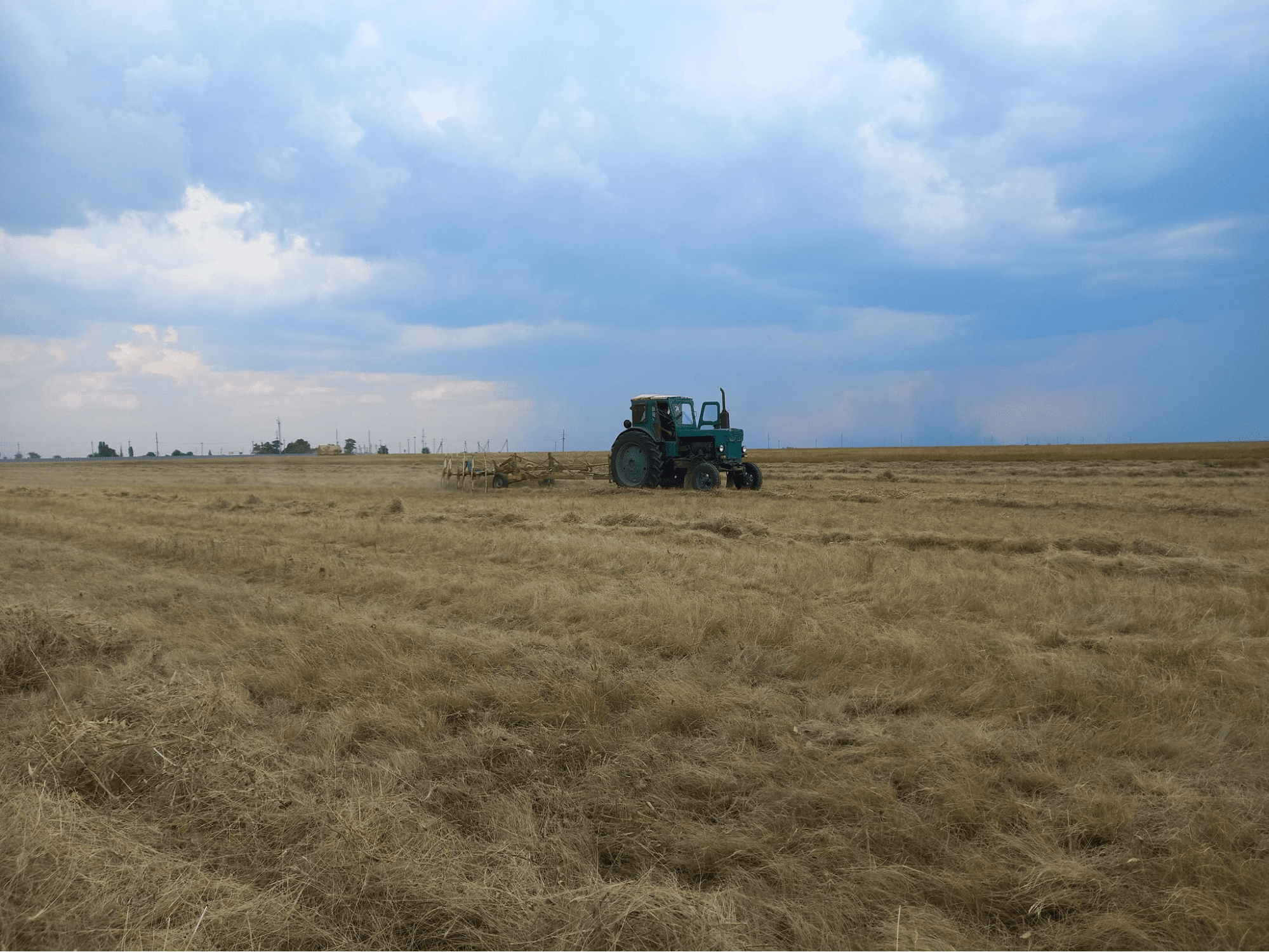
Photo from Askania-Nova Biosphere Reserve Facebook page
What is the solution?
"Story with help is an extensive collection of individual cases"
Now, Ukrainian Nature Conservation Group volunteers are helping to buy humanitarian goods for the employees who could not leave, looking for housing and temporary employment for those who left for the territory controlled by Ukraine, and continuing to evacuate environmentalists from areas where hostilities are taking place. There is no single recipe for how to help.
According to Oleksii Vasyliuk, the situation is constantly changing, and a different solution is needed in each case to help. Sometimes, they had to make decisions "on the fly." For example, this was the case with the evacuation of employees of one of the national parks on the islands. Then UNCG paid for the fuel so colleagues could sail to the islands and pull people out to a safe area.
The organization managed to raise funds through charitable donations since the beginning of the full-scale war, which it almost immediately spent on helping Ukraine's nature parks and biosphere reserves. The most significant number of donations came from Poland, the USA, Canada, and the UK, and the organization received a relatively small amount from Switzerland:
"If someone had told me a year ago that we would become a support agent for parks that would be able to provide so much help, I would not have believed it. But now I understand that this help, although very important, is 'nothing' because each national park or nature reserve requires from 2 to 5 million hryvnias per month for maintenance. That's why it's a pity that the contributions have become much smaller because the need for help is only getting bigger."
You can also help the parks by making a voluntary donation on the UNCG website or by participating in other initiatives, for example, in charity fairs organized by scientists to raise funds for their colleagues.
And what about those parks that are located in controlled territories? Many of them accept migrants from occupied lands. According to Oleksii Vasyliuk, they don't receive additional funds for this; everything happens only thanks to the nature conservation employees' will and desire to help. For displaced persons, says Vasyliuk, such accommodation can be compared to rehabilitation: wild nature, fresh air, and peace.
We believe that the nature reserves and national parks in the currently occupied territories will be peaceful very soon because Ukraine will be there again.
Newsletter
Digest of the most interesting news: just about the main thing



